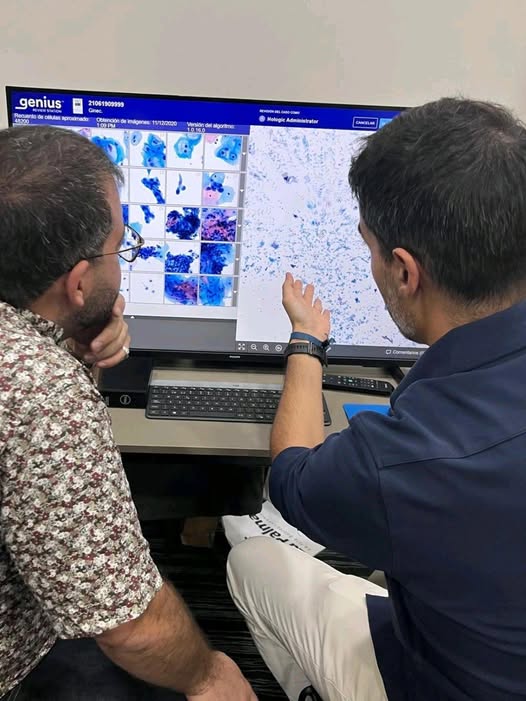NEOPLASTIC INDICATORS
Tumor markers are substances found at higher than normal levels in the blood, urine, or body tissue of some people with cancer.
Although cancer cells often produce tumor markers, healthy cells in the body may produce them as well.
Tumor markers are also called biomarkers.
Tumor markers and cancer
High tumor marker levels can be a sign of cancer. Along with other tests, tumor marker tests can help doctors diagnose cancer and plan treatment. Tumor markers are most commonly used to do the following:
-
Guide treatment decisions. Some tumor markers help doctors decide whether to add chemotherapy or immunotherapy after surgery and/or radiation therapy. Other tumor markers help doctors choose which drug(s) or drug combination will work best.
-
Monitor treatment. Doctors may use changes in tumor markers to figure out how well treatment is working.
-
Predict the chance of recovery. Tumor markers can help doctors predict the cancer's behavior and response to treatment. They can also predict a person’s chance of recovery.
-
Predict or watch for recurrence. Tumor markers may be used to predict how likely it is that the cancer will come back after treatment, called a recurrence. Looking for changes in the amount of a tumor marker may be part of a patient’s follow-up care plan. It may also help detect a recurrence sooner than other tests.
Tumor marker tests may also be used to screen for cancer in people with a high risk of the disease. Some may be done to learn more about the cancer when it is first diagnosed. But the presence or amount of a tumor marker alone is not enough to diagnose cancer.
Limitations of tumor markers
Tumor markers are not foolproof. Other tests are usually needed to learn more about a possible cancer or cancer recurrence. Some limitations of tumor markers are listed below.
-
A condition or disease other than cancer can increase tumor marker levels.
-
Some tumor marker levels may be high in people without cancer.
-
Tumor marker levels may vary over time, making it hard to get consistent results.
-
The level of a tumor marker may not rise until the cancer worsens. This is not helpful for early detection, screening, or watching for recurrence.
-
Some cancers do not make tumor markers that are found in the blood. This includes cancers with no known tumor markers. Also, some patients do not have higher tumor marker levels even if the type of cancer they have usually makes tumor markers.
Testing for tumor markers
A member of your health care team will take a sample of blood or urine to test for tumor markers. The sample is sent to a laboratory for analysis. Some tests must be repeated because the levels of tumor markers can change from month to month. This is called serial testing.As with other laboratory tests, a reliable tumor marker test must be both specific and sensitive.
- Specificity. There is a chance that the testing could result in a false positive. This can happen when the tumor marker itself or the test used to find it is not specific enough. If the testing is not specific enough, the results could suggest a tumor is present or growing despite treatment. In this case, a healthy person may go through unnecessary tests and anxiety.
- Sensitivity. If the tumor marker or the test is not sensitive enough, the results may suggest a false negative. This is when testing shows that a person does not have a tumor but they actually do. Or, tumor marker levels can suggest cancer treatment is working when it is not. This means that a person who may benefit from additional testing and treatment may not receive it if only tumor marker testing is used.
Tumor markers and specific cancers
Different tumor markers may be used for different cancers. How and when they are used varies quite a lot. Also, many cancers do not have blood tumor markers that are useful for guiding care. For details about whether tumor markers may be a part of your diagnosis and treatment planning, talk with your health care team.
Questions to ask the health care team
Consider asking your health care team these questions:
-
Do you recommend that I have any tumor marker tests? If so, which ones?
-
Which ones have you already performed, if any?
-
How are these tests performed? How often should I have them?
-
Can you explain the test results?
-
If I have abnormal levels of a tumor marker, what does that mean? How does it affect my treatment?
-
How will tumor marker tests be used in my follow-up care?
-
Where can I get more information about tumor markers?

